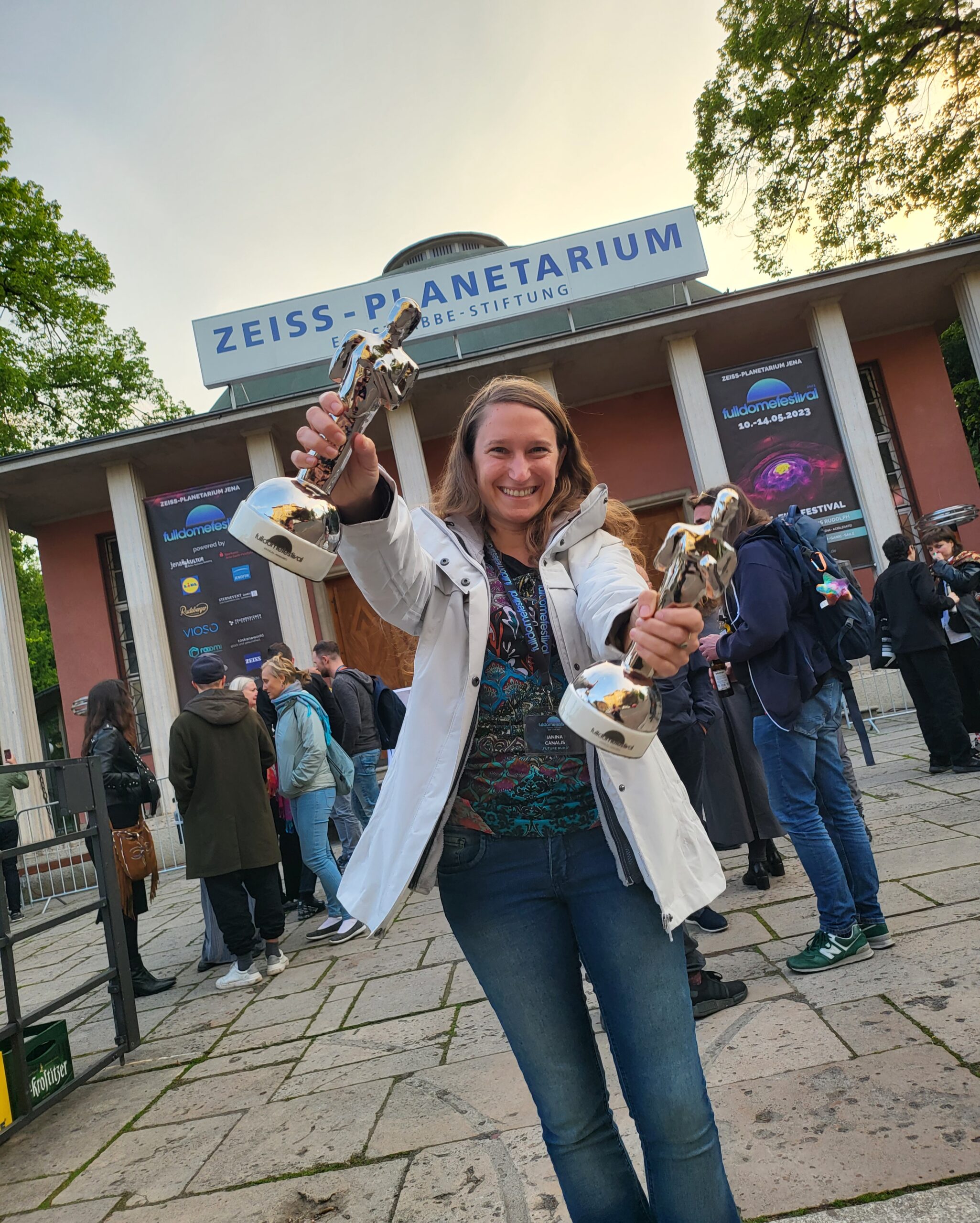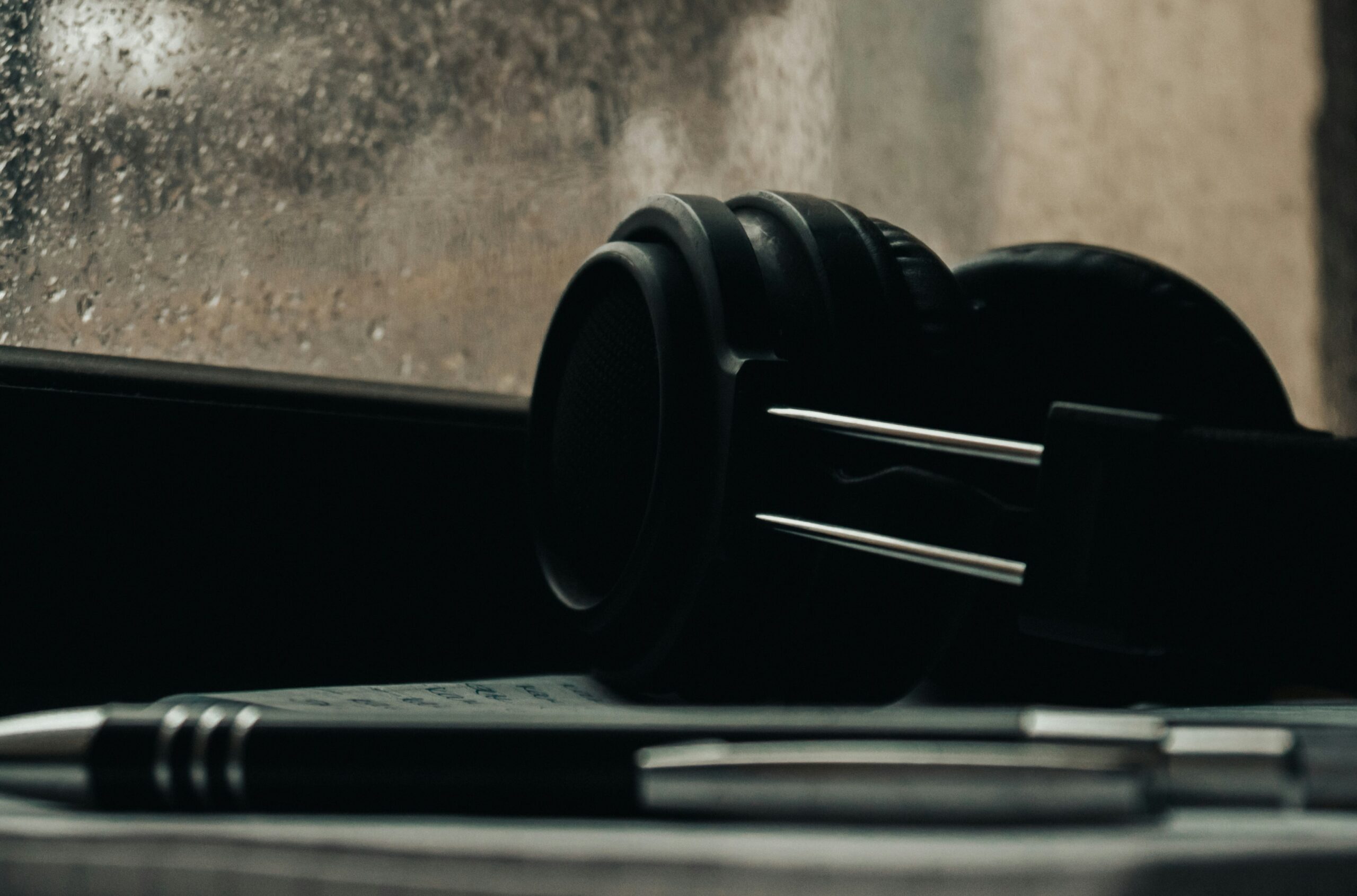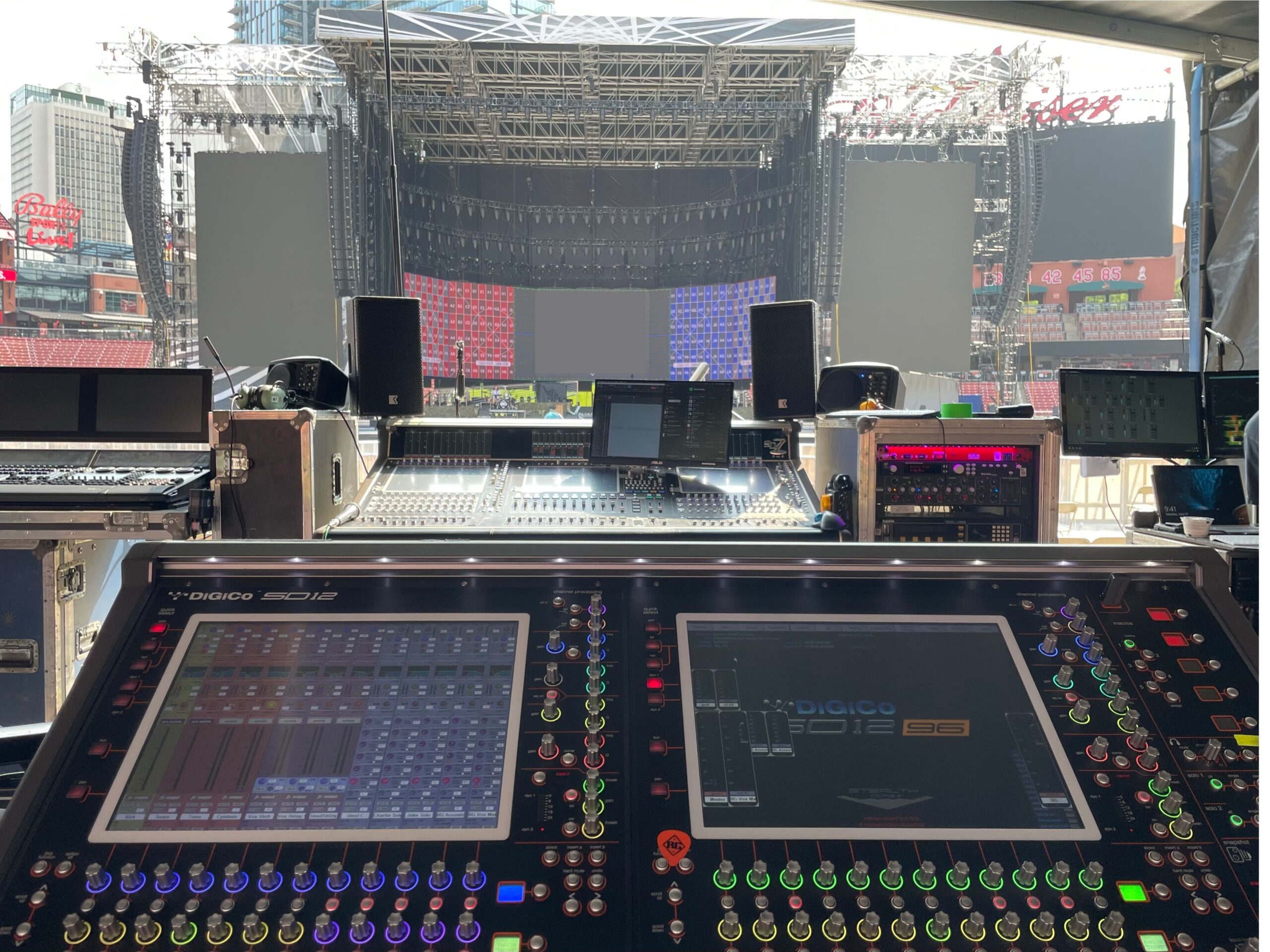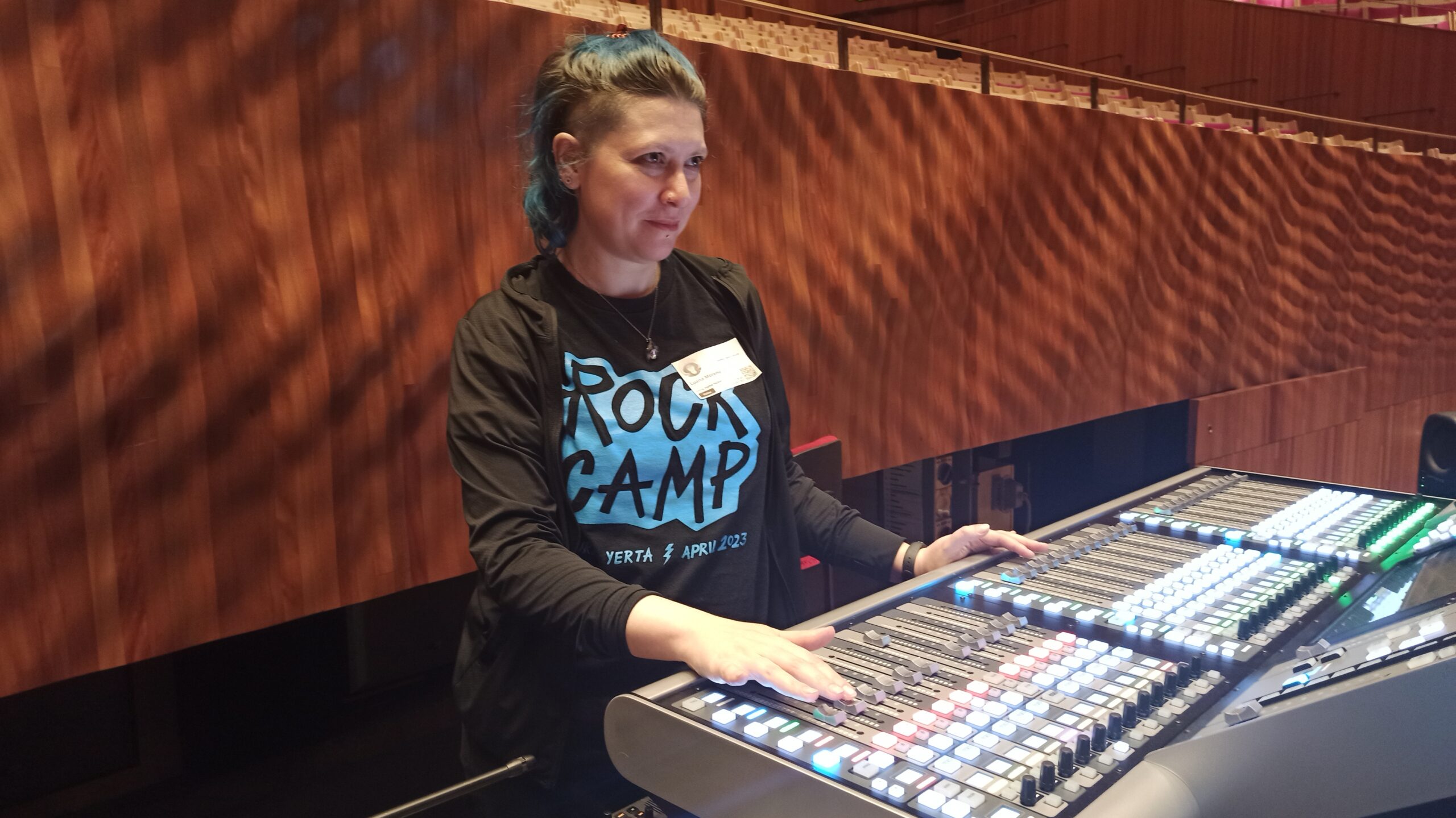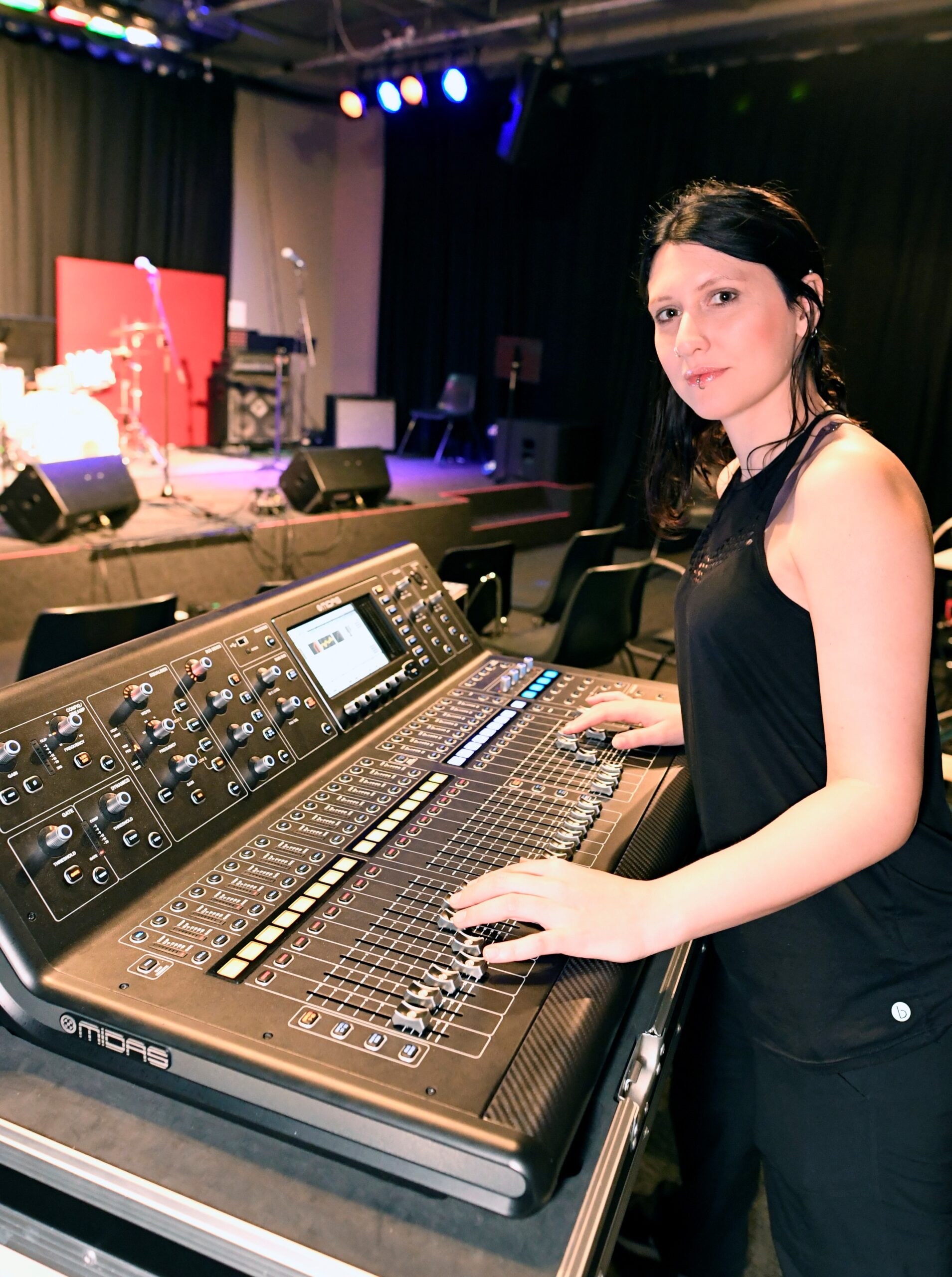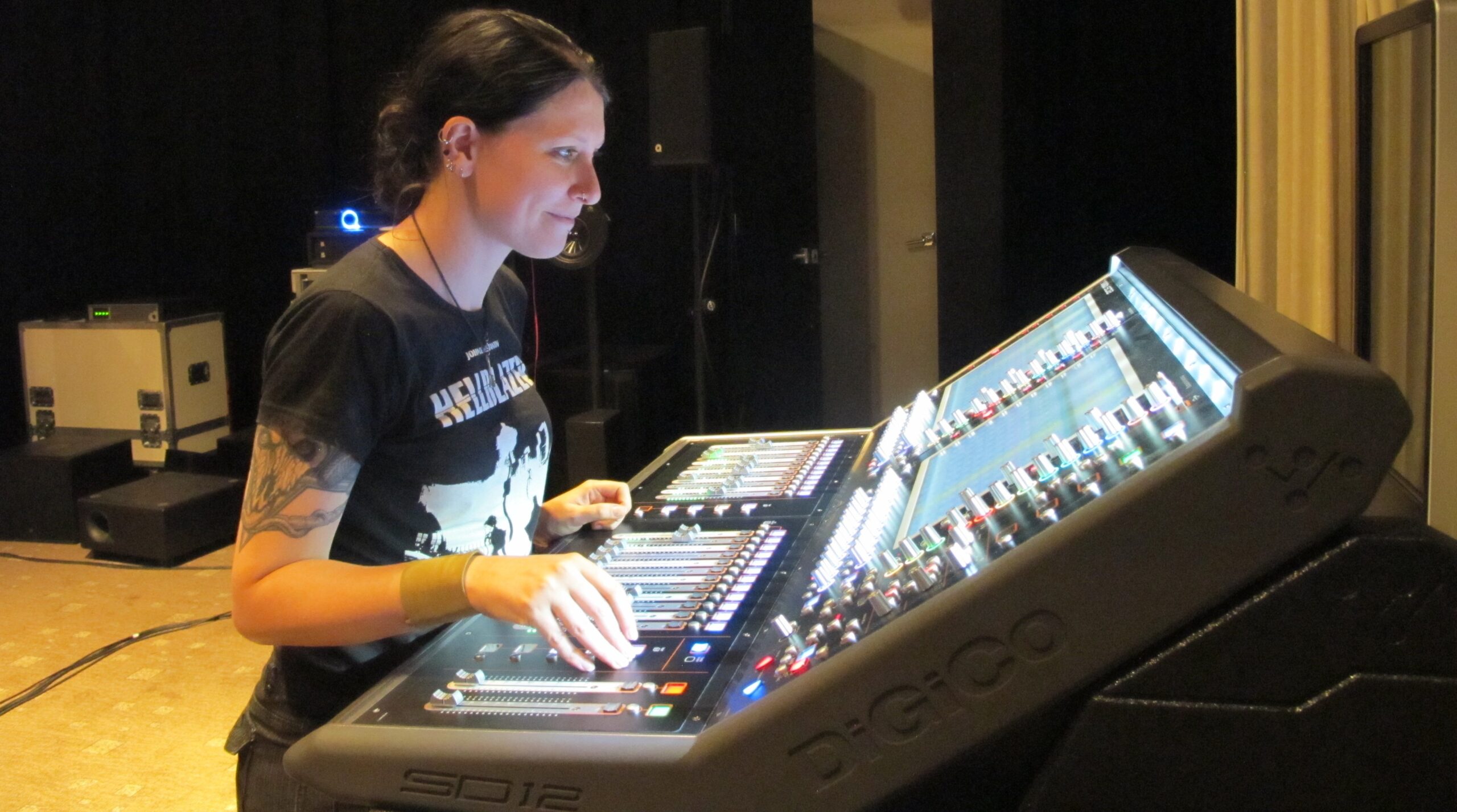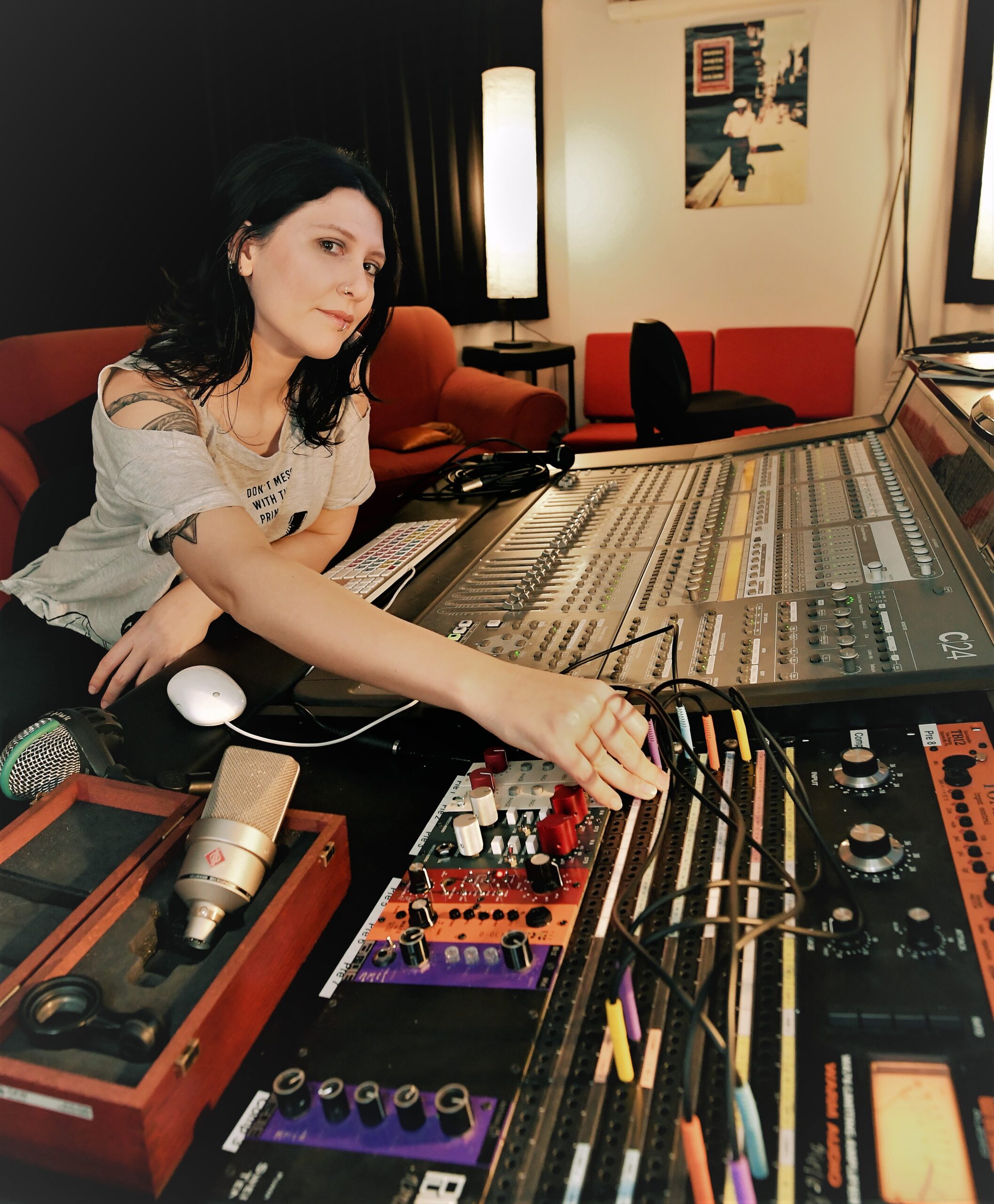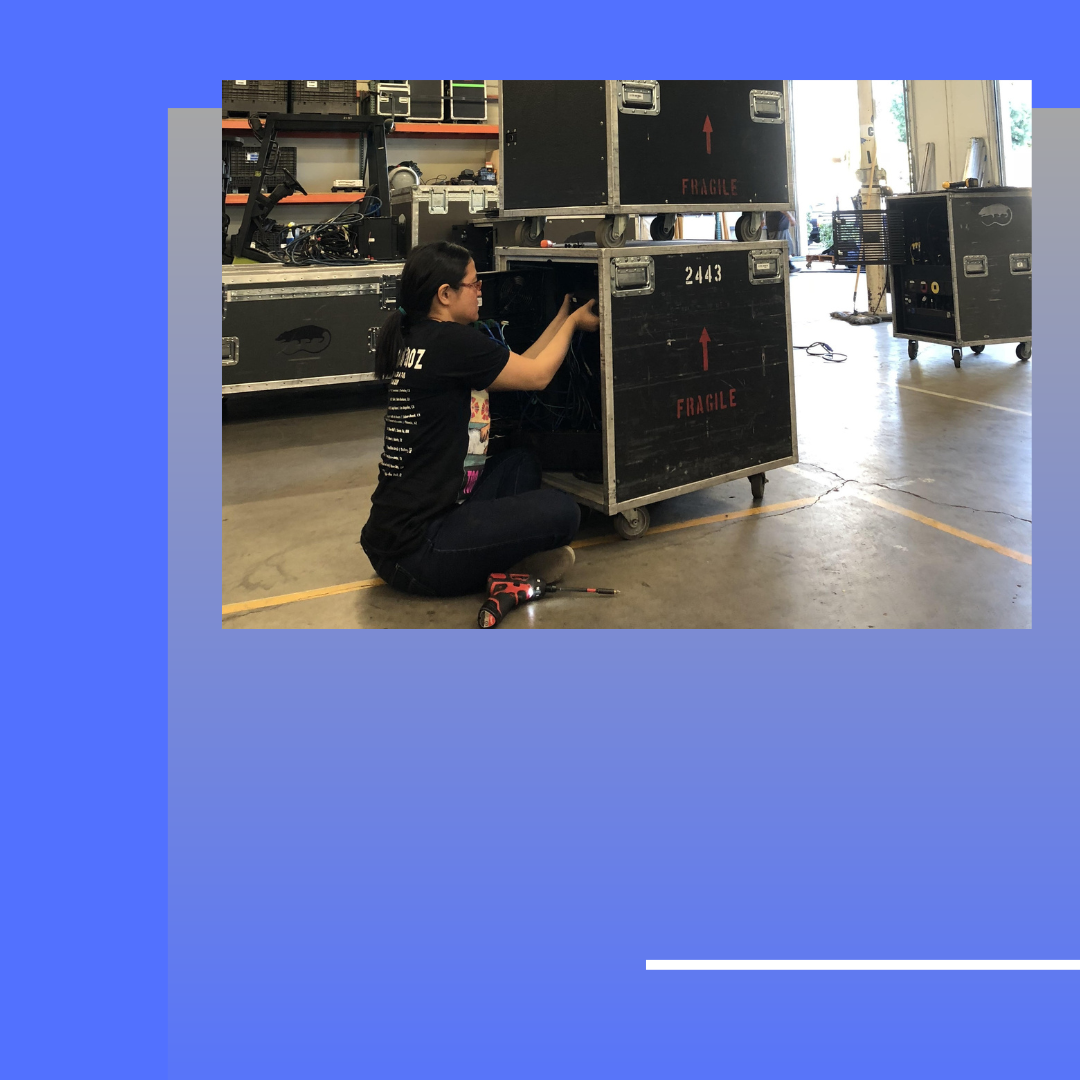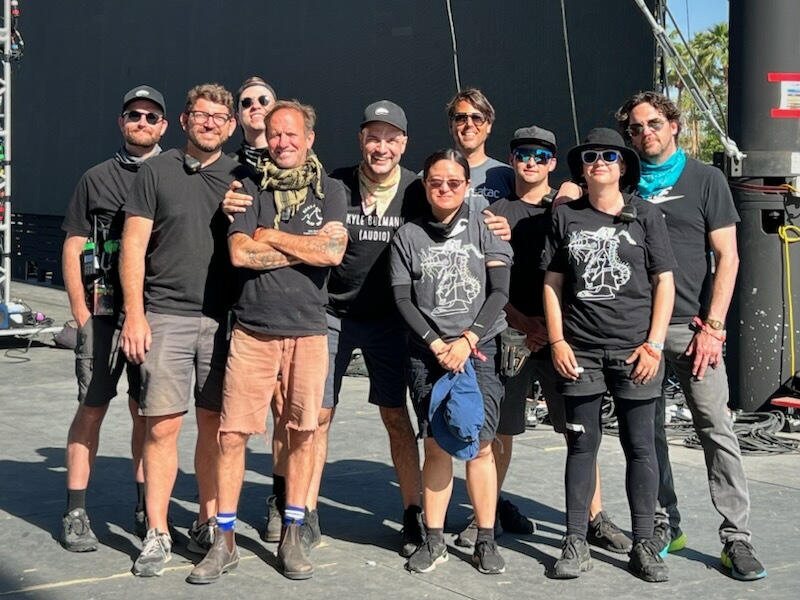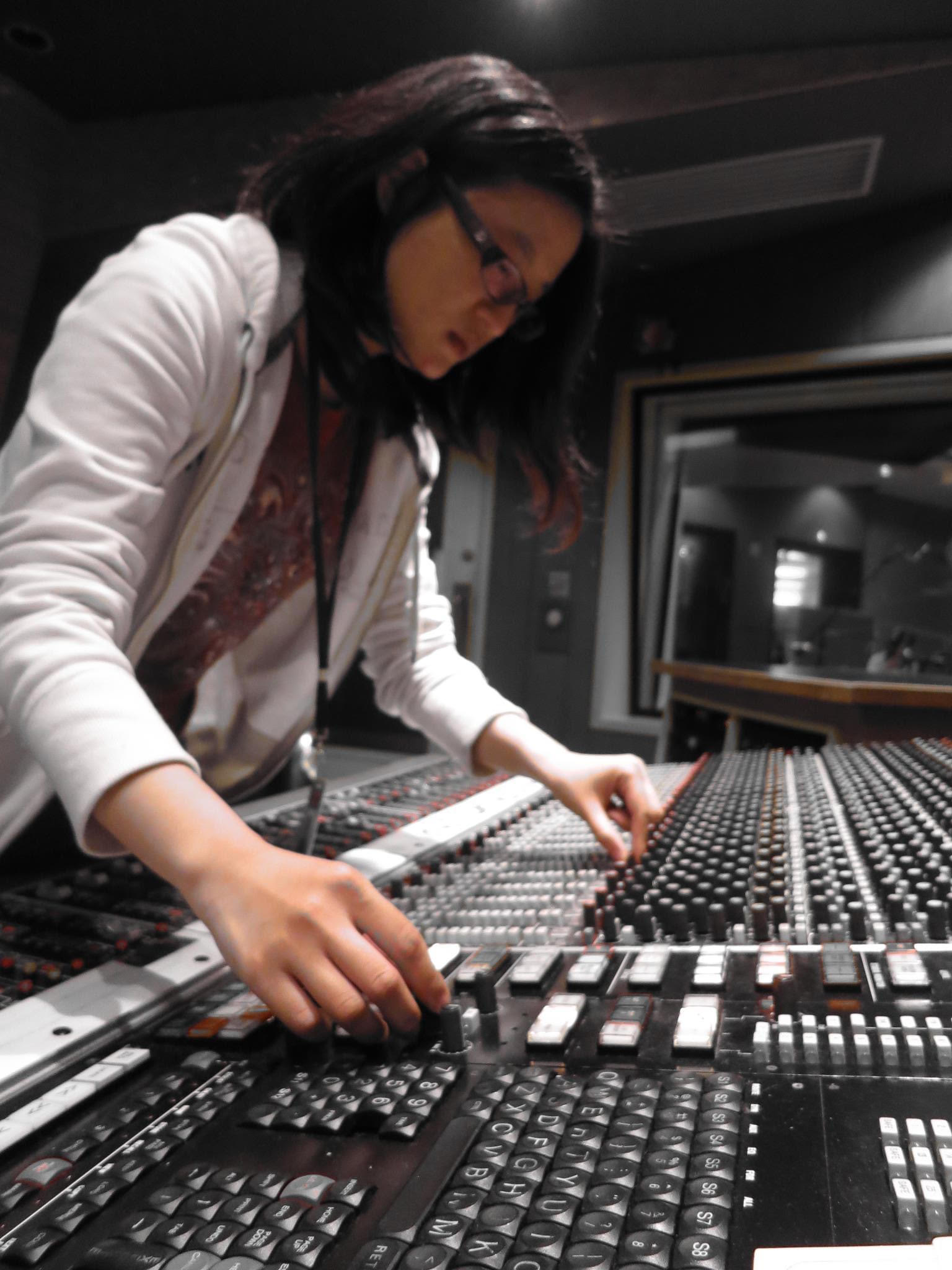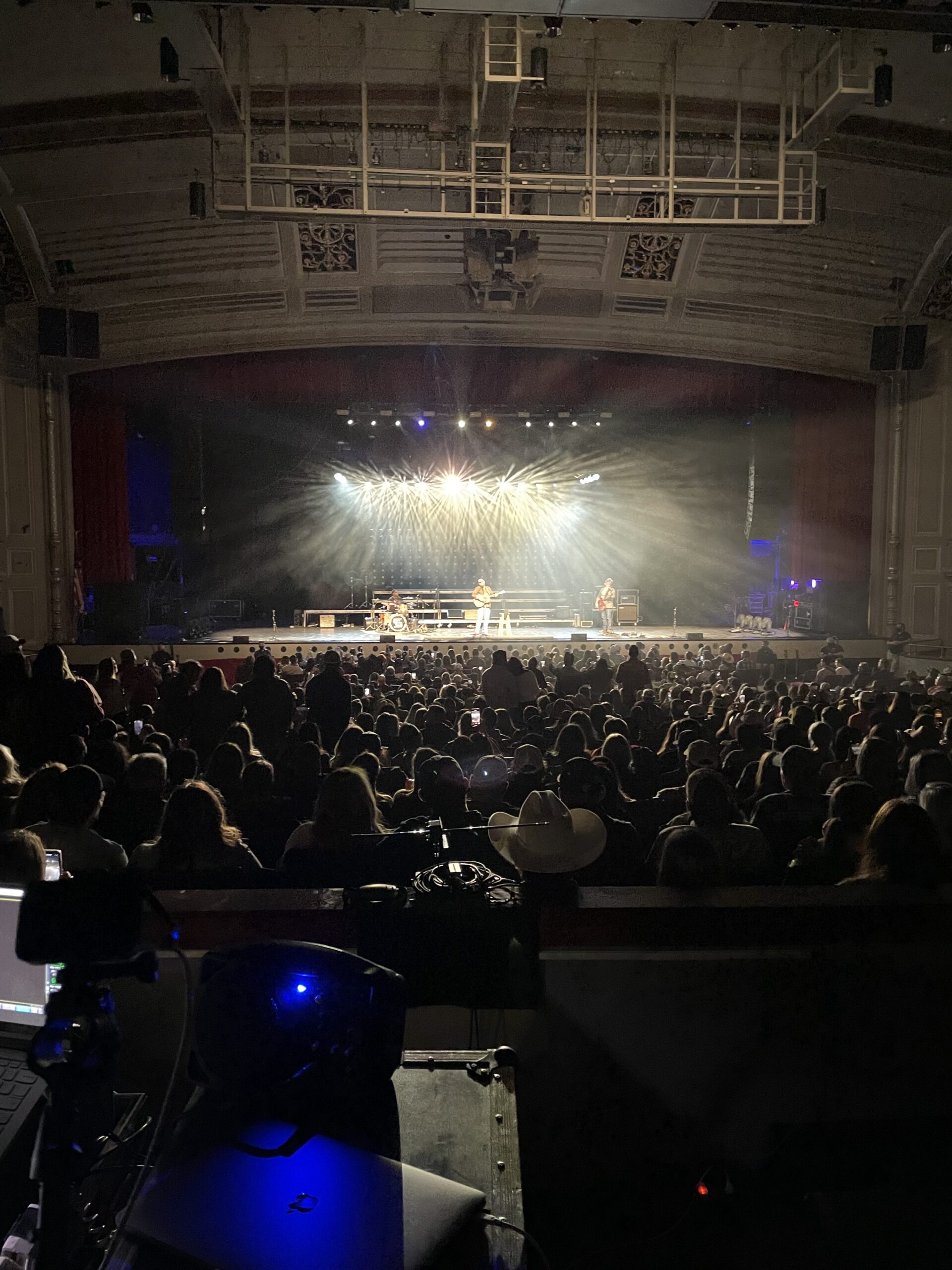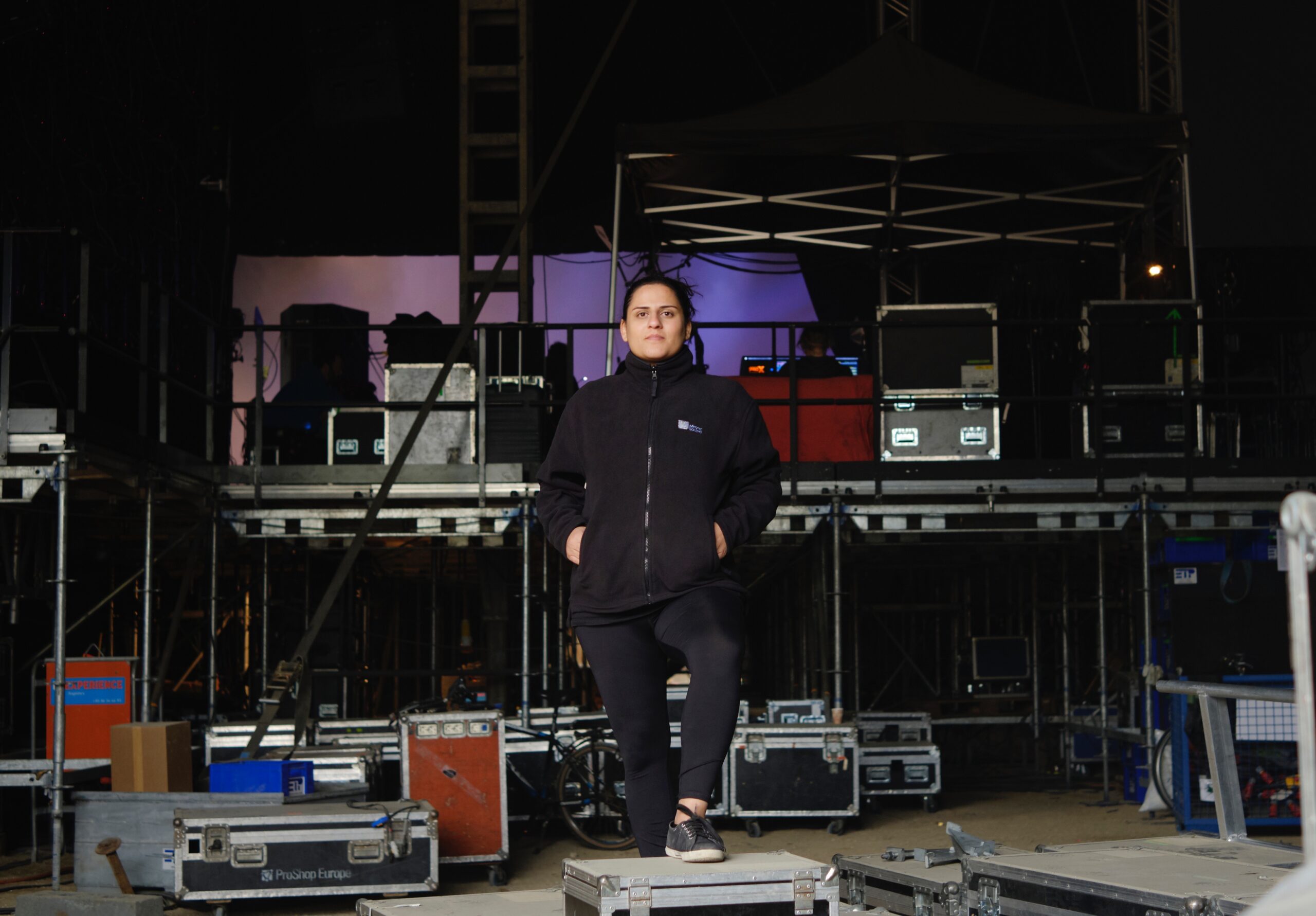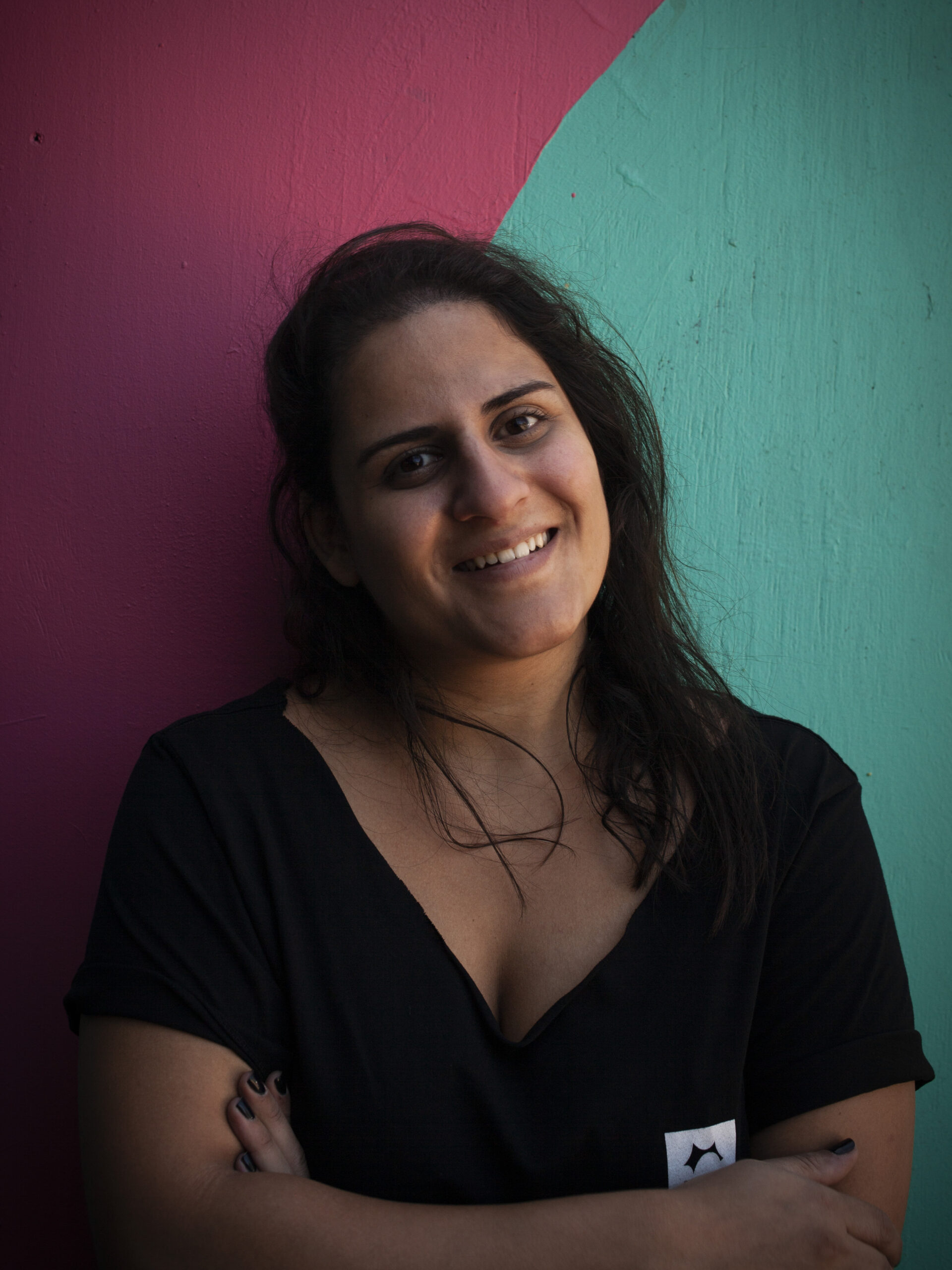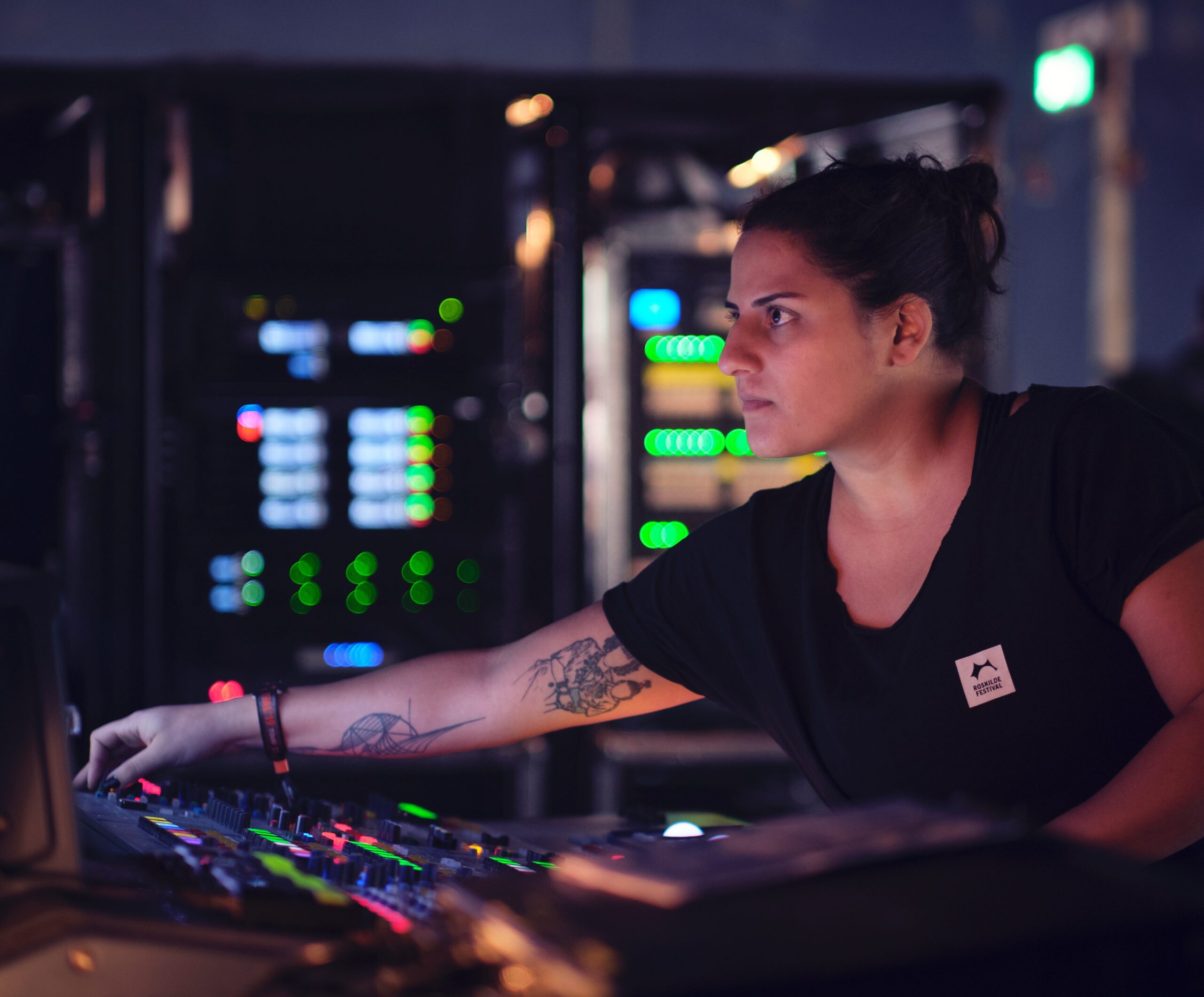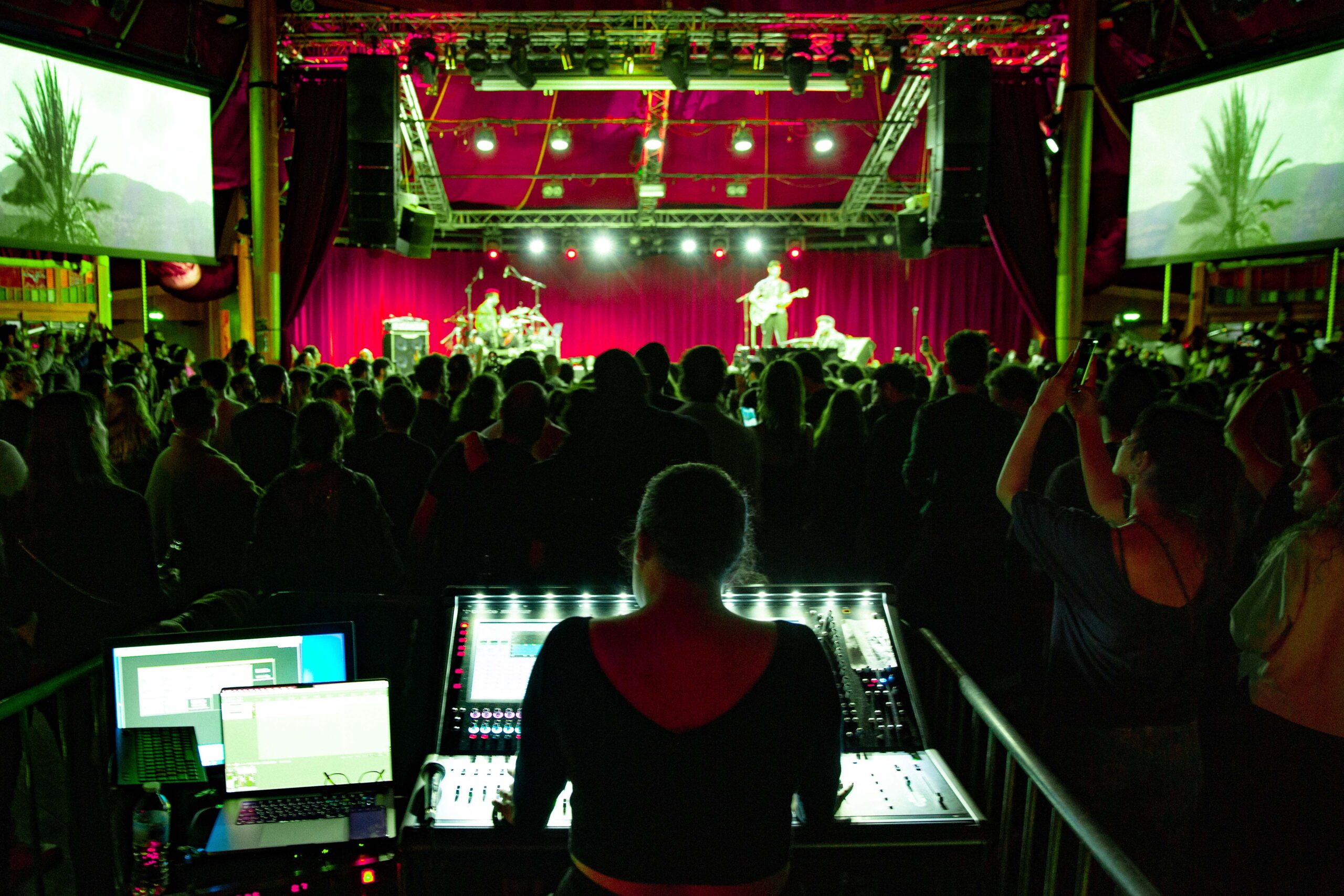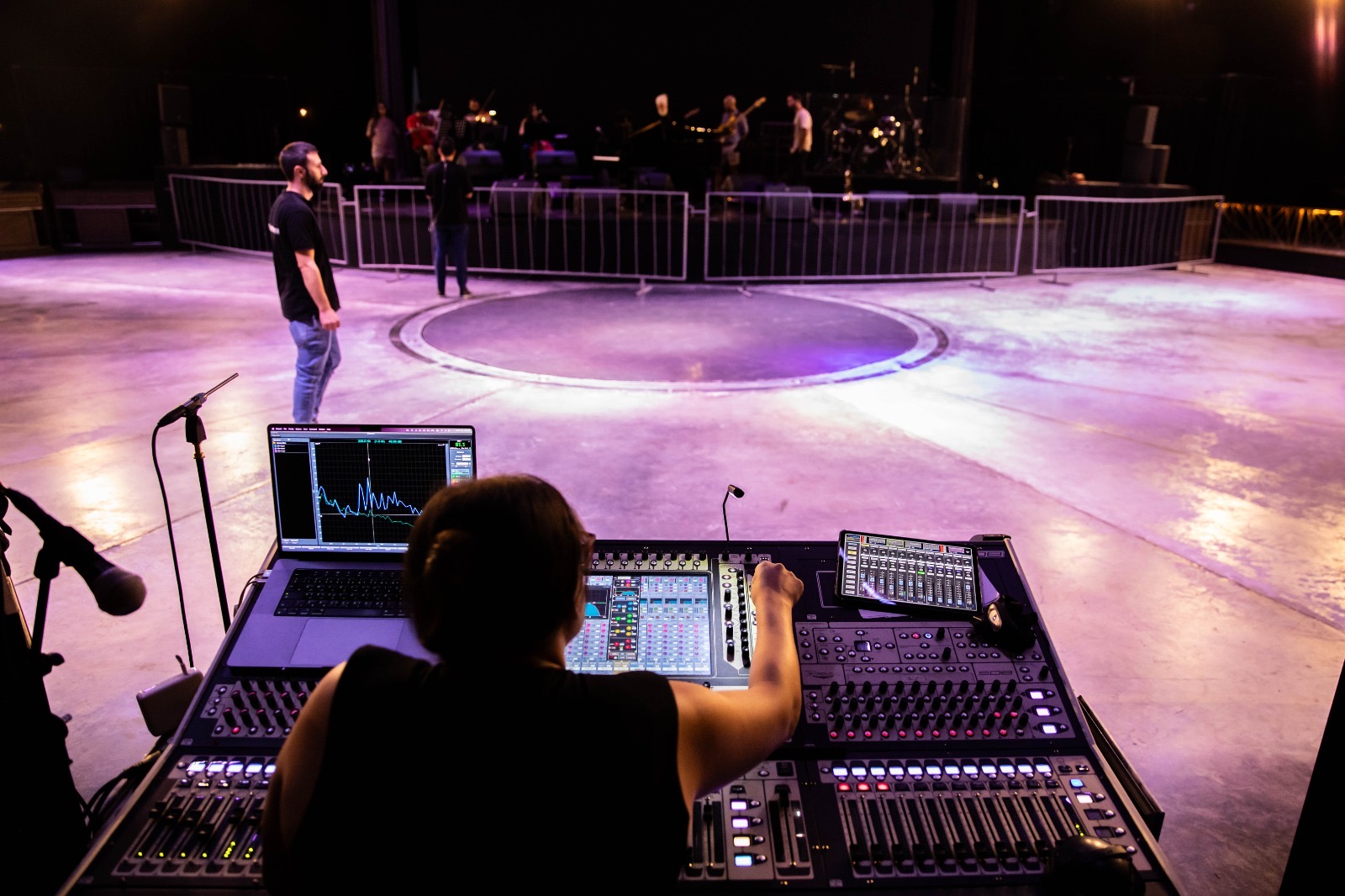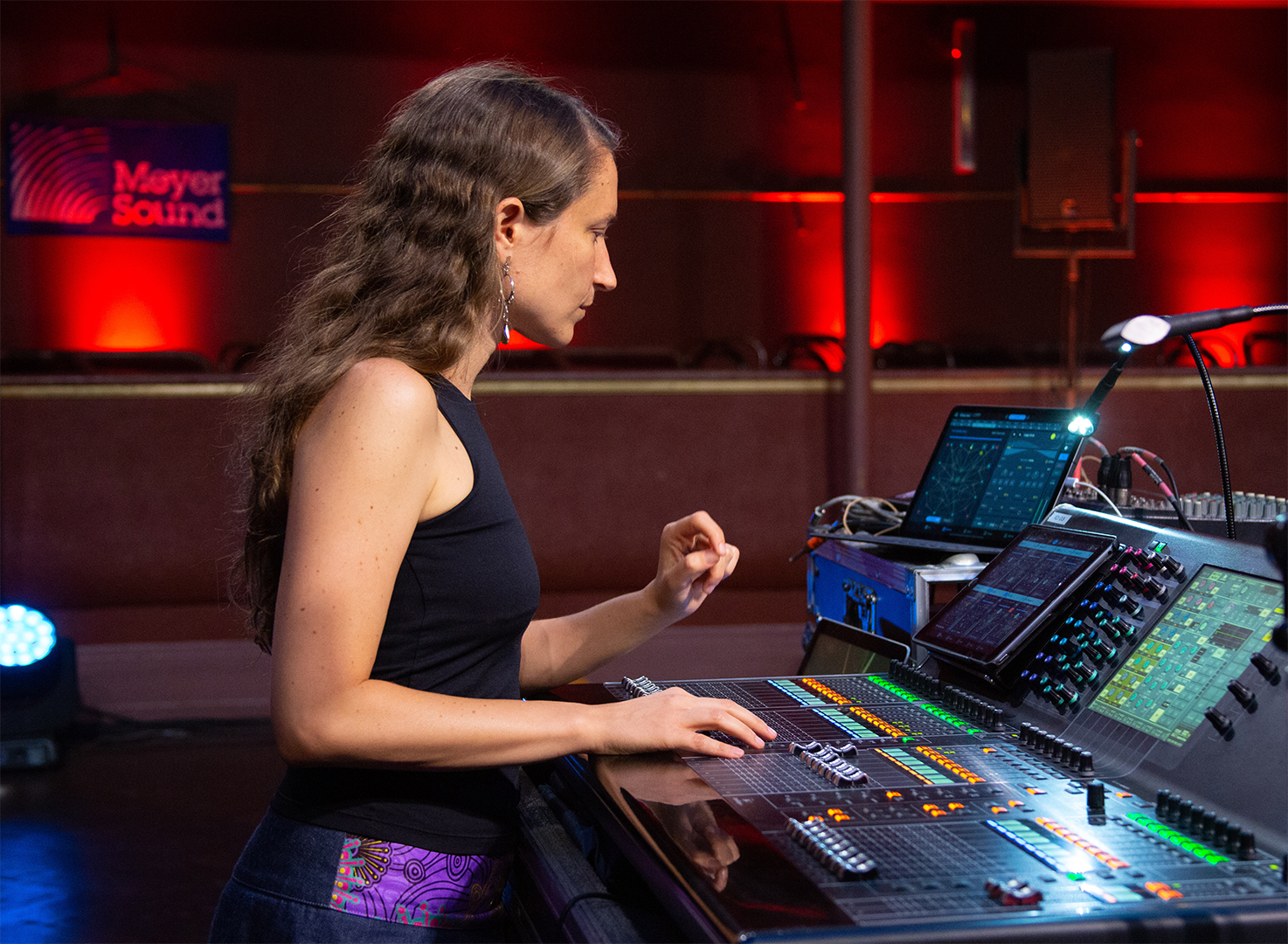
Ianina Canalis Specialist in Live Sound – Spatial Audio – Software Development – Education
Ianina has been working for Meyer Sound for the last four years and has been working in audio for over 20 years.
Early Life
Did music and audio interest you while you were growing up?
I started studying music when I was 10 and I finished with a Teaching degree in music when I was 18 years old.
Musical Background?
I used to play guitar and saxophone and sang when I was a teenager. I loved playing classical music in small groups, and I also participated in playing in orchestra and choirs for several years.
When did you discover audio as a career path?
When I was a teenager.
How did you get interested in audio?
I studied music and I frequently went to listen to play to my friends but the sound was not good at all and I felt bad because concerts with my friends and the sound didn’t like me at all. I had the feeling that all the effort they made during the rehearsals was not reflected in the live show because it was almost impossible to listen to all the instruments or melodies.
Educational Background
Did you attend a University/College/Trade School?
I got a degree in teaching music at the College of Music Juan Pedro Esnaola in Buenos Aires, Argentina where I come from. Then I got a double degree in Sound and Recording and Audiovisual Technology at the Universidad Nacional de Lanus in Argentina. Some years later, I went to the UK and studied for an MSc in Audio Engineering at Leeds Beckett University. And finally, I got a PhD in Science and Technology at Universidad Nacional de Quilmes in Argentina
Career Start
How did you get your start?
When I started studying at the University, I felt that I needed another challenge, so I walked through the main avenue in Buenos Aires, where most of the theatres are and I knocked on all the doors saying “I want to participate as a Sound Engineer” but I didn’t have any technical skill at that time. In several places, they invited me to see some rehearsals and event setups.
In the Centro Cultural General San Martin, they told me that they needed people but there was no money. With great happiness, I began to participate in all the shows. I was so happy that I went six days a week because every day there was a different band and they had events of various musical styles; jazz, rock, folklore, music for kids, etc. After a few months, they hired me! I worked there for three years while I continued my studies and one day, they offered me a tour as a PA mixing engineer with Jairo (a well-known Argentine folklore singer). With a lot of enthusiasm, I quit and jumped into the touring lifestyle with different bands in Argentina and Latin America. Over 15 years on tour I worked with Jairo, Los Pericos, Virus, J. C. Baglietto, Jairo, Soledad Villamil, Lisandro Aristimuño, Duratierra, and more.
On the other hand, Gustavo Basso, an Acoustical Engineer, offered me to be his assistant at the Universidad Nacional de Lanús for the subject of Acoustics when I was 20 and that was the beginning of my path as a teacher-researcher. For some years, I assisted different Professors who taught audio subjects until I became the Live Sound teacher. In those years, with Jorge Petrosino, we created the Acoustics laboratory where research work is carried out. We published some investigations related to different topics like the Photoliptophone (Fotoliptófono), and human hearing perception over 20 kHz.
What did you learn interning or on your early gigs?
In every part of my career, I learned different things. Everything was equally important, the beginning, the university, the tours, the teaching, the research, all that experience contributed to who I am today.
Did you have a mentor or someone that helped you?
During all these years I developed my career working on tours as a monitor, PA, or System Engineer and at the university as a teacher and researcher. I didn’t have a mentor, however, over the years I met wonderful people who were passionate about audio from whom I learned a lot and with whom we shared talks, experiments, research, and a lot of music, so the list is huge!
Career Now
What is a typical day like?
There is no typical day. At Meyer Sound I am the product owner of some software so, basically, I coordinate the design and implementation of them. Then, I can use the software we create like Spacemap Go and Nebra in shows and demos, which is great! And finally, we meet with customers, and they share their experiences so we can collect feedback to improve our software.
How do you stay organized and focused?
I am very passionate about everything I do, so I work for goals, I focus my job on small things we need to solve every day and also think of the big picture and plans for future challenges.
What do you enjoy the most about your job?
There is a very creative part of my job that I enjoy. When we create software from the beginning there are no limits other than our imagination to produce a new concept, idea, workflow, etc. That creative freedom in a work team is very nice.
I also give some seminars or trainings, as I love teaching, I enjoy wonderfully these activities. And when I work on Spacemap Go demos I mix musical content keeping my passion for spatial audio and music.
I also have some side projects where I mix content for spatial configurations like Future Ruhr: A full dome film that won two Janus Awards at the Fulldome Festival in Jena, Germany in 2023. We won 2 categories: Best Spatial Audio Award & Best Full Dome Innovation & Creativity Film.
What do you like least?
I don’t like spending too many hours on the computer.
If you tour what do you like best?
I enjoy mixing music and spending time with people on the stage, at the hotel, on the bus, etc. In January 2024 I was in Argentina and worked on a short tour and I enjoyed every moment.
What is your favorite day off activity?
I love to spend time in nature doing some sport. I love meeting friends and spending hours and hours talking and playing music. I also love dancing, so when I can, I go to dance salsa or tango.
What are your long-term goals?
I’d love to spend more time mixing.
What if any obstacles or barriers have you faced?
At various times being a woman was a challenge. I had the strength to overcome many situations, comments, and attitudes that would not have happened to me if I had been a man. From harassment to questions like which member of the band I had sex with to be the sound engineer. Some guys, couldn’t believe I worked with famous bands because I am good at mixing.
How have you dealt with them?
In a job, after much persecution and psychological harassment, I quit, and I didn’t say anything about the real reason why I was leaving. I was very young. A few years later, I learned how to answer and face uncomfortable situations. As I strengthened my career and my personality, these situations faded away. I think that many of the women who started in this profession 20 or more years ago, suffered many uncomfortable moments. Some of them could not endure such a hostile environment. And that is one of the reasons why we are still a minority. However, I believe that we paved the way for younger generations, and today, at least in Argentina, many more women and minorities are Audio Engineers, Sound Technicians, Lighting Engineers, Stage, etc. than 20 or 15 years ago.
Advice you have for other women and young women who wish to enter the field?
The first thing I can suggest is that they pursue their dreams. If complex, stressful, and distressing situations appear they do not isolate themselves. There are a lot of SoundGirls and we support each other so it is important to talk and learn from our experiences. We are building communities and that is what helps us strengthen ourselves and overcome unfair situations. So don’t stay alone, look for more SoundGirls!
Favorite gear?
I love mixing with DiGiCo and Meyer Sound!
You can check out some Ianina’s work here
